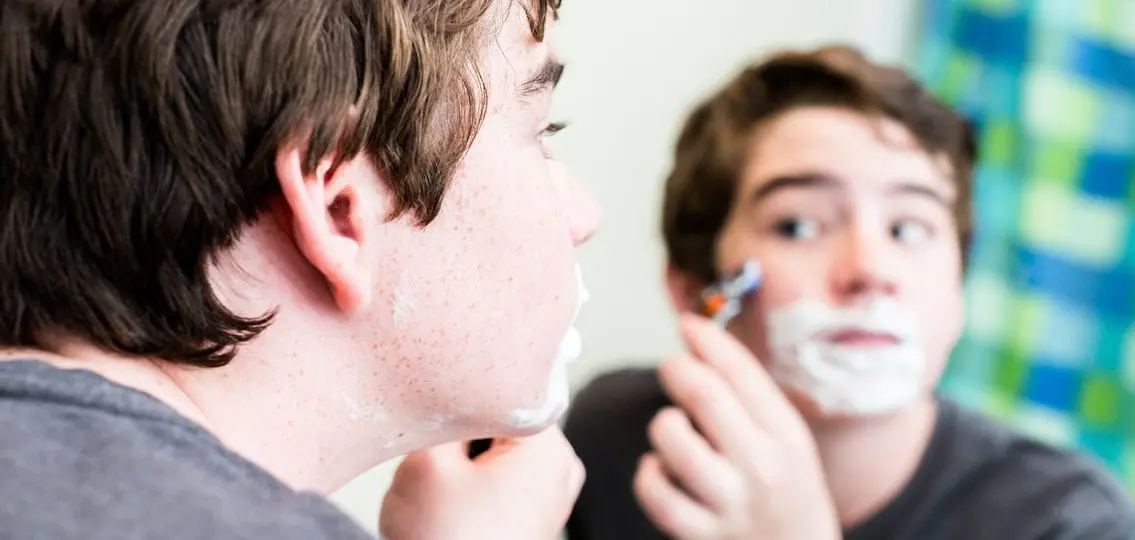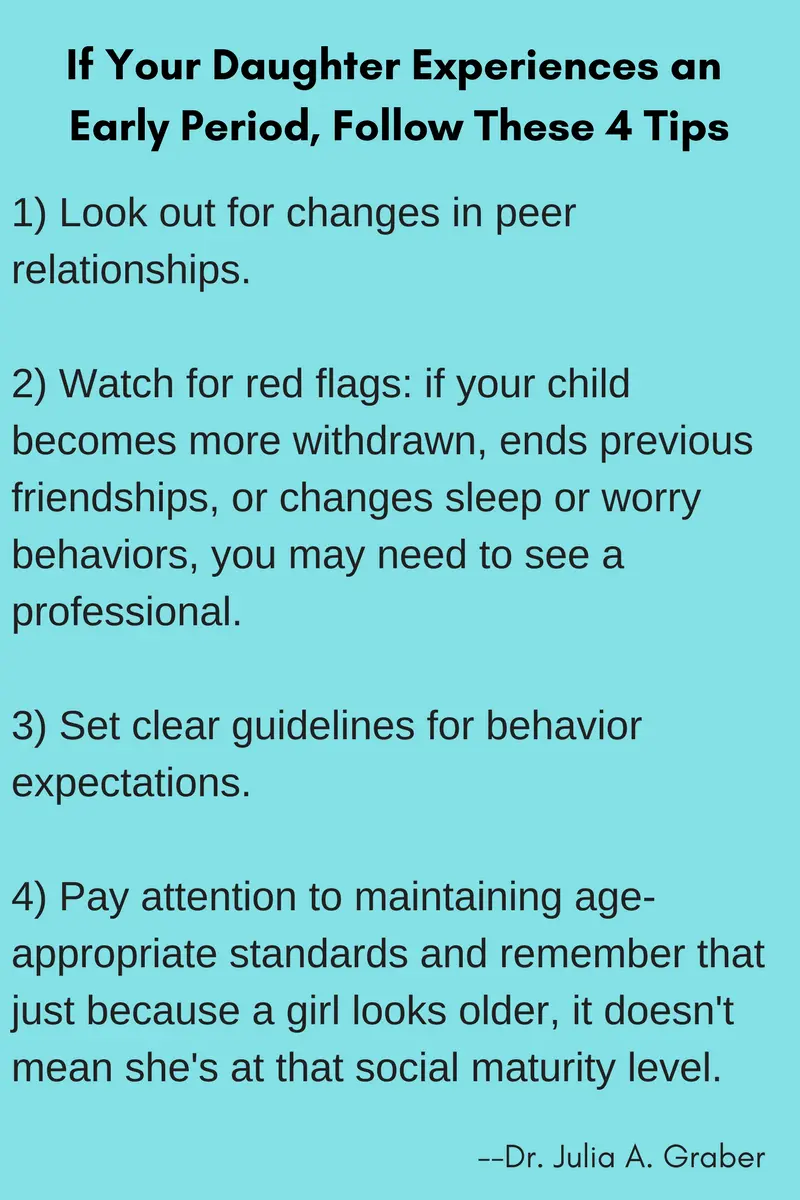As if navigating puberty weren’t hard enough, a recent study* suggests that girls who get their periods early are at increased risk of depression and antisocial behavior, not only in their teens but also well into adulthood. Researchers at Cornell University followed about 7,800 girls from adolescence through their late 20’s. They focused on the difficulties faced by girls who appear physically mature, but still feel and think like other girls their age.

“As girls enter puberty, they start to look older – and the world often responds to that,” explains Jane Mendle, the study’s author and Associate Professor of Human Development at Cornell. “Their cognitive, social, and emotional development doesn’t necessarily match their physical appearance. This mismatch can sometimes make it more difficult to adapt to all of the new changes and experiences that accompany this transition.”
The average age for a first period is now about 12.5 years old. But some girls may experience the early onset of puberty as young as 8.
Challenges for those experiencing early menarche can include keeping up friendships with those who haven’t yet developed. Girls, in particular, find that they get attention or comments about their changing bodies. This sometimes comes from strangers or older boys, Mendle notes.
Additionally, some girls might experience bullying, such as body shaming which could be attributed to their hips developing, or being sexually harassed at school. This unwanted attention can also lead to more social situations. Older peers may seek them out. They might enter into the highs and lows of romantic relationships and encounter earlier sexual pressures before they are ready. As teenagers, they may be more likely to engage in substance abuse. They have other psychosocial problems that persist in later years.
Fundamentally, it’s about the challenges that come with standing out.
“Many teens already struggle with feeling different from their peers, leading to a feeling of disconnection,” according to Julia A. Graber, Ph.D. Interim Chair, Department of Psychology at University of Florida. “And being younger means you have less ability to meet the challenges you might face if people are treating you based on how you look.
The new study is remarkable in finding that some girls experienced a depression in adolescence that maintained its intensity into adulthood. An early period alone, however, doesn’t guarantee a troubled life. Many factors contribute to healthy psychosocial development. Often, it’s when things get cumulative that problems brew.
“Even if a girl goes through earlier puberty, it doesn’t mean she will necessarily struggle as an adult,” Mendle assures. “It’s an added risk, and one worth paying attention to. But it’s important to remember that depression and antisocial behavior are complicated. Mental health is determined by many different factors beyond the timing of puberty.”
High quality relationships with parents and family can help the child weather the challenges more effectively.
“When you notice that puberty is happening, it’s not that it’s too late. And if things are going well before that, it probably won’t become disastrous,” Graber says.
Remember too, it’s easy for parents to treat the early developer as if she’s older, simply because their daughter is more mature in appearance. For instance, allowing a girl to do things that parents might not typically allow a 13 or 14 year old to do.

“Just because you look older doesn’t mean you’re at that social maturity level. It does not mean that you have the sense of self to really know who you are and who you’re becoming and reliably make the decisions,” states Graber.





